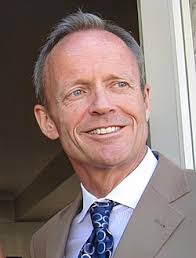
Introduction
Stockwell Day is a prominent figure in Canadian politics known for his diverse career as a politician, businessman, and public commentator. Born on November 30, 1950, his influence spans several decades, with significant contributions to the Conservative Party of Canada and a tenure as a federal cabinet minister. Understanding Day’s impact on Canadian politics offers insights into the evolution of conservative ideologies and party dynamics in the country.
Political Career
Day began his political career in Alberta, becoming the leader of the Canadian Alliance in 2000. His leadership came during a pivotal time, where he aimed to unite various right-wing factions within the Canadian political landscape. Day’s tenure was characterized by his focus on conservative values, economic management, and a tougher stance on law and order.
In 2001, he was elected as a Member of Parliament for the Okanagan-Coquihalla riding, showcasing his strong support in Western Canada. Day served as Minister of International Trade and Minister of Public Safety under Prime Minister Stephen Harper’s government, where he advocated for policies that aimed to strengthen Canadian trade relationships and enhance national security.
Public Perception and Controversies
Despite his significant achievements, Day’s career was not without challenges. He faced criticism for some of his political beliefs and statements, particularly on social issues. His leadership of the Canadian Alliance was often scrutinized, and he resigned in 2002, which initiated a significant reformation within the party that ultimately led to the successful merger with the Progressive Conservative Party.
In the years following his political career, he transitioned into the business sector and became a prominent public speaker and media commentator, contributing to discussions on economic policy and social issues. He remains a respected figure among conservative circles, although polarizing among the general public due to his past positions.
Conclusion
Stockwell Day’s journey through Canadian politics reflects the shifting landscape of conservative thought and governance in Canada. His experiences offer a window into the complexities of political leadership and the challenges of uniting disparate ideological groups. As Canada continues to navigate political and economic challenges, the lessons learned from figures like Day remain relevant. Future generations may look to his legacy for insights on leadership, resilience, and the importance of engaging in a diverse political discourse.






